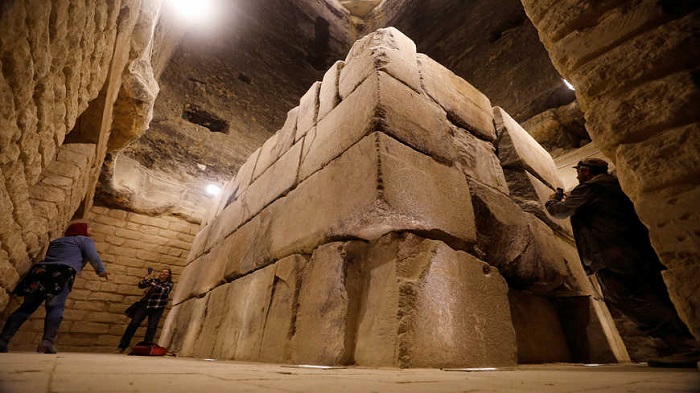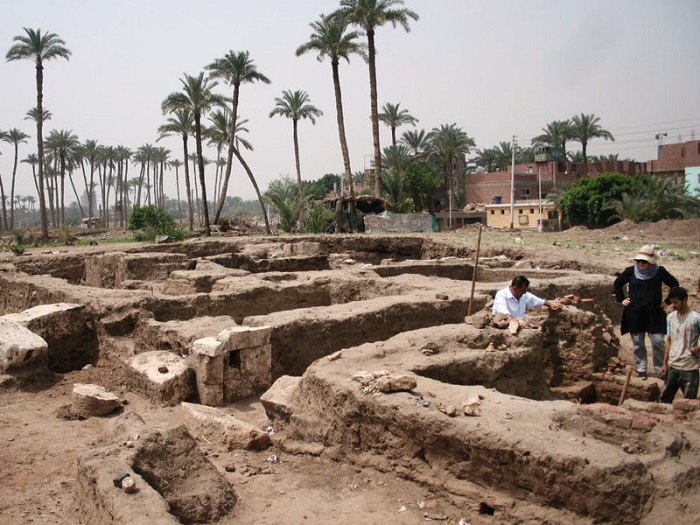Amid the Coronavirus outbreak, Egypt has made a unique discovery - that of a cemetery which apparently dates back to the el-Sawi era, also known as the 26th Dynasty, as reported by Al-Monitor.
The Secretary General of the Supreme Council of Antiquities, Mostafa Waziri, disclosed the the findings on May 17, after the discovery was made in the country's Bahnasa region, by the Egyptian-Spanish archaeological mission affiliated with the University of Barcelona.
Earlier known as the city of Oxyrhynchus, Bahnasa is one of the popular archaeological sites in Egypt.
 Reuters
Reuters
Upon the cemetery's discovery, Waziri said that the findings are of unique nature and such a style has never been seen before in Bahnasa. He revealed that the cemetery has one room which is built using polished limestone. He said, "Its entrance is from the north side, and its walls have curvature from the top at the beginning of the roof, which makes it flat and not vaulted, as is customary in the rest of the previously discovered tombs in the area."
The mission was led by Esther Ponce and she explained how eight tombs dating back to the Roman era with a domed and non-engraved roof have been discovered. "Several Roman tombstones, bronze coins, small crosses, and clay seals have also been found inside the tombs," she said.
The Egyptian Ministry of Tourism and Antiquities had approved of 280 archaeological missions at different sites back in October 2019. However, due to the pandemic coronavirus, the operations witnessed an unexpected pause on all the foreign missions.
 NPR (Representative image)
NPR (Representative image)
Presently, only 5 missions are actively taking place with reduced number of archaeologists and working hours.
Tags
Science Tech